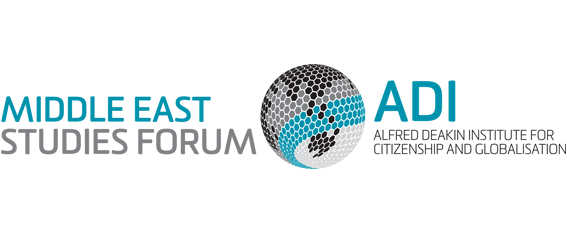The second candidates debate took place on Tuesday afternoon.
Much of the debate centred on the economic plans of the candidates, as well as COVID and issues affecting women, youth and ethnic minorities. There was also some discussion about cultural and social restrictions in Iran. The candidates did not spend as much time hurling and responding to accusations about each other. However, again there was a notable absence of foreign policy issues, largely because, it is believed, the Supreme Leader declared these issues to be off limits in the election campaign.
Ebrahim Raisi lamented that “People’s trust in the government has reached the lowest level”.
Mohsen Rezaei declared the country to be in a worse situation than during the Iran-Iraq War, but promised that 1400 (2021) is the year of opening.
Saeed Jalili promised “this is not a debate, this is an intelligence test”.
Abdol-Nasser Hemmati said of the election that “it is not a choice between bad and worse, it is a choice between those who close doors and those who open doors”.
Amir-Hossein Ghazizadeh Hashemi congratulated the national football and volleyball teams on their recent victories, and emphasised the non-factional, universal nature of his planned “salaam” government.
Ali-Reza Zakani said that the next administration must help Iranians increase the birth-rate and housing affordability, saying that 58% of Tehranis’ income goes toward housing.
Mohsen Mehr-Alizadeh called for the introduction of a minimum wage.
The debate included accusations between candidates, although not as much as the first debate. Jalili reiterated a point he has made throughout the campaign, that if showmanship takes the place of real work in politics, then the country cannot move forward. Mehr-Alizadeh reiterated his criticism of Raisi’s education, that the Chief Justice had only six classes of proper education. Raisi responded “my degree is not equivalent to what Mr Mehr-Alizadeh says; I have a seminary degree and a university degree”. Ghazizadeh came to Raisi’s defence, saying that Iran has “many great scientists among Islamic scholars, including in economics, and I myself have learnt from the clergy in many matters”.
Mohsen Rezaei talked about how he had become an internet meme, saying that “jokes about me are my capital”, seemingly following Hemmati’s philosophy that all publicity is good publicity.
A few candidates used Rouhani’s failures to attack Hemmati, with Jalili saying “they say we agreed to lift the sanctions, but the sanctions were not lifted”, referring to a statement by President Rouhani in early May. Zakani added “the representative of the Rouhani government here (Hemmati) is not willing to debate” before playing on “hope”, the slogan of the Rouhani campaign in 2013, saying that “this government has left no hope”. Zakani, who resents the term cover candidate used to describe him and others who are believed to be willing to stand aside to Raisi, returned to this topic in the second half of the debate, saying “Mr Hemmati, if I am a cover candidate, you are a cover candidate – come and cover the 8 years of disaster that you caused the people”. Raisi explicitly said that “Mr Hemmati must be held accountable during his tenure at the Central Bank” to which Hemmati hit back with “you have been in the judiciary for 40 years, should you be held accountable for all the sabotage in the judiciary? Now you tell me I have to answer for just eight years?”
COVID was an important issue of debate, with Hemmati said the next administration will fully vaccinate the country. Mehr-Alizadeh said he would vaccinate the country within three months.
The politics of ethno-linguistic minorities were present in this debate. In the first debate, Mehr-Alizadeh and Hemmati both spoke in Azeri, appealing to the large number of voters of Azeri origin. This time two candidates without Azeri background, Raisi and Rezaei, tried to appeal to the same voters. Raisi said confidentially that “the Turkish (Azeri) regions love me very much” while Rezaei embarrassingly and incorrectly tried to say “long live Azerbaijan” in Azeri.
On the future of the youth, Ghazizadeh expressed his dismay at the continual brain drain in Iran, and called for education reform, saying that “our youth spend five years of their lives in a room preparing for the concours (university entrance exam)”.
Issues affecting women also figured in the debate. Hemmati promised that he would have five women in his cabinet, and each of these women would be seriously involved in decision making. Ghazizadeh said that “instead of one, two or five people, I will dedicate the whole cabinet to women” before saying that he believed in meritocracy. Rezaei promised free internet to women head of households so that they could be involved in the online economy, before promising to lift restrictions on women athletes, such as in attending gyms. Mehr-Alizadeh spoke on the issue of the hijab, saying “if a girl’s hair is a hair out, we should not send her a message of terror”. Raisi promised guidance patrols (like morality police), but for economic managers, while Zakani said that people’s privacy was a red line that must be respected.
This discussion tied to issues of cultural and social restrictions in Iran. Rezaei said that the Council of the Cultural Revolution “is no longer efficient; I ask the Supreme Leader to dissolve it”. Rezaei quoted the lyrics of the song “We Hope for Joy” by Shahin Najafi, a rapper living abroad, saying “our youth have hope”. Hemmati responded with “they rap their music, but ban rap music”.

